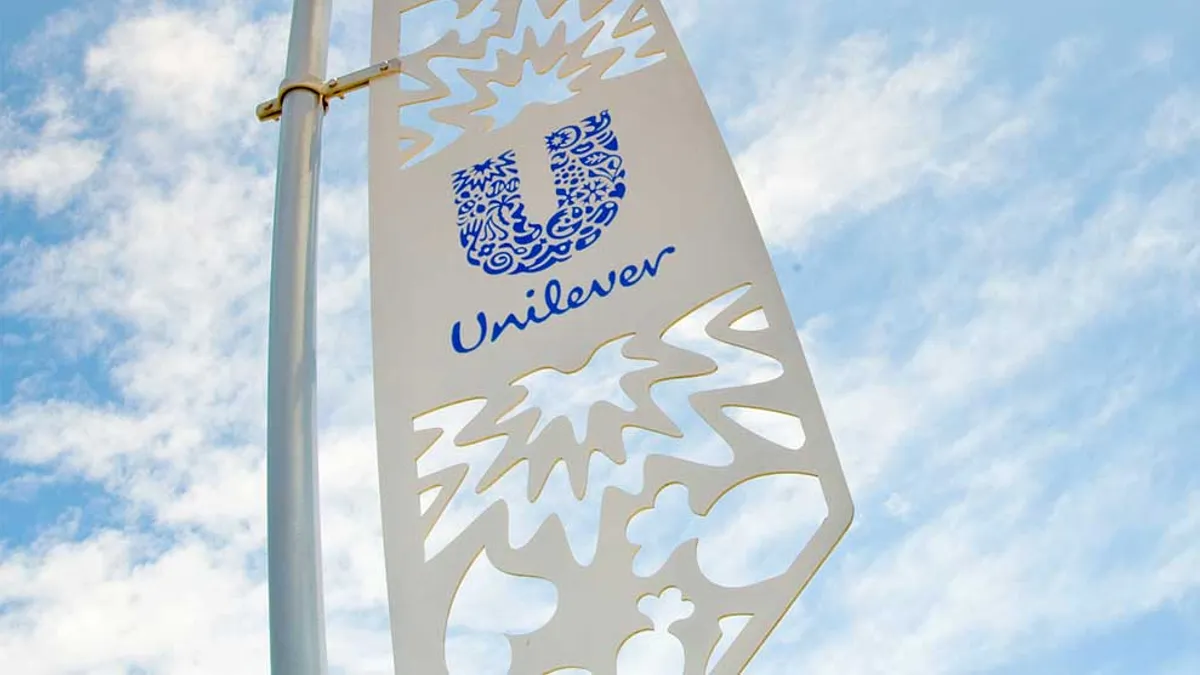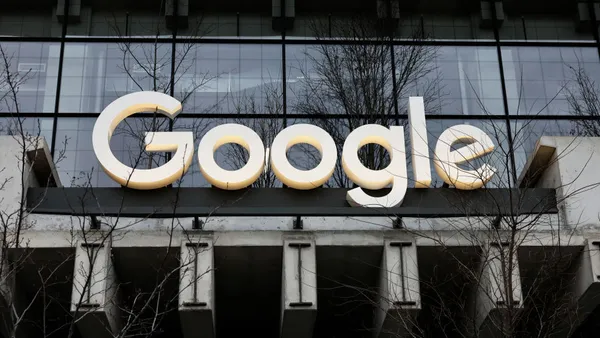Dive Brief:
- Unilever will invest $2.4 billion (2 billion euros) over the next two years to support high-growth business segments like beauty products, plant-based food and e-commerce. The maker of products including Dove soap, Lipton Tea and Ben & Jerry's ice cream outlined those plans in its quarterly earnings statement, which showed underlying sales growth of 3.5% during Q4 from a year earlier and net sales of $14.5 billion (12.1 billion euros), down 4.2%.
- Sales in North America rose 7.1% during its most recent quarter on stronger demand for in-home foods, ice cream and hygiene products, though commercial food sales to restaurants and hotels were weaker, along with sales of beauty products, because of store closures and low demand among homebound consumers. However, Unilever plans to focus on the prestige beauty category amid stronger growth worldwide for the full year, CEO Alan Jope said in a conference call to discuss results.
- Unilever expanded its spending on marketing by $192.4 million (160 million euros) in 2020 after conserving its budget during lockdowns in the first half of the year. The company's e-commerce business grew 61% for the full year to make up 9% of sales as consumers shopped from home. Because of store closures, more than 50% of beauty sales came through e-commerce channels last year, per its quarterly report.
Dive Insight:
Unilever seeks to position itself for higher growth this year, identifying key categories that have shown promising results amid the disruptions of the pandemic that put a drag on the company's recent financial performance, which in turn has disappointed investors.
Amid the uncertainty, Unilever has identified key growth areas where it plans to invest like plant-based foods, beauty products and e-commerce. Vegan foods have become more popular among health-conscious consumers and people who are more aware of the environmental effects of food production. Beauty products are a high-growth category in developing markets for Unilever, though regions like North America and Europe could be due for a comeback if the pandemic subsides. Demand for e-commerce surged during the health crisis so far, and it's likely that many consumers will continue to shop online because of convenience and product selection.
Unilever also underscored its efforts to develop purpose-driven brands that resonate with consumers. That goal echoes a plan the company outlined last month to fight climate change and social inequality. Unilever will prioritize partnerships with companies that offer employees a living wage, significantly increase spending on suppliers owned or operated by people from underrepresented groups and improve the skills of its workforce. Unilever's commitment to causes is evident as brands like Ben & Jerry's take a stand on political issues and Hellmann's mayonnaise urges consumers to avoid wasting food.
The company set a target of 3% to 5% sales growth for 2021, after temporarily suspending guidance in 2020 as the health crisis clouded the outlook. However, the company faces a variety of cross currents as shopping habits remain in flux. While consumers bought more food to prepare at home, there is a possibility that restaurants and the broader hospitality industry could make a comeback if mass vaccinations help to curb the pandemic. A shift back to prior spending habits would again change the sales mix for Unilever amid its various supply channels.
In North America and Europe, the company has seen higher demand for food consumed at home, supporting growth for brands like Hellmann's mayonnaise and Ben & Jerry's ice cream, but consumers spent less on beauty and personal care products while stuck at home. Developing markets like China and India bounced back, helping to lift global sales of its beauty and personal care brands.














